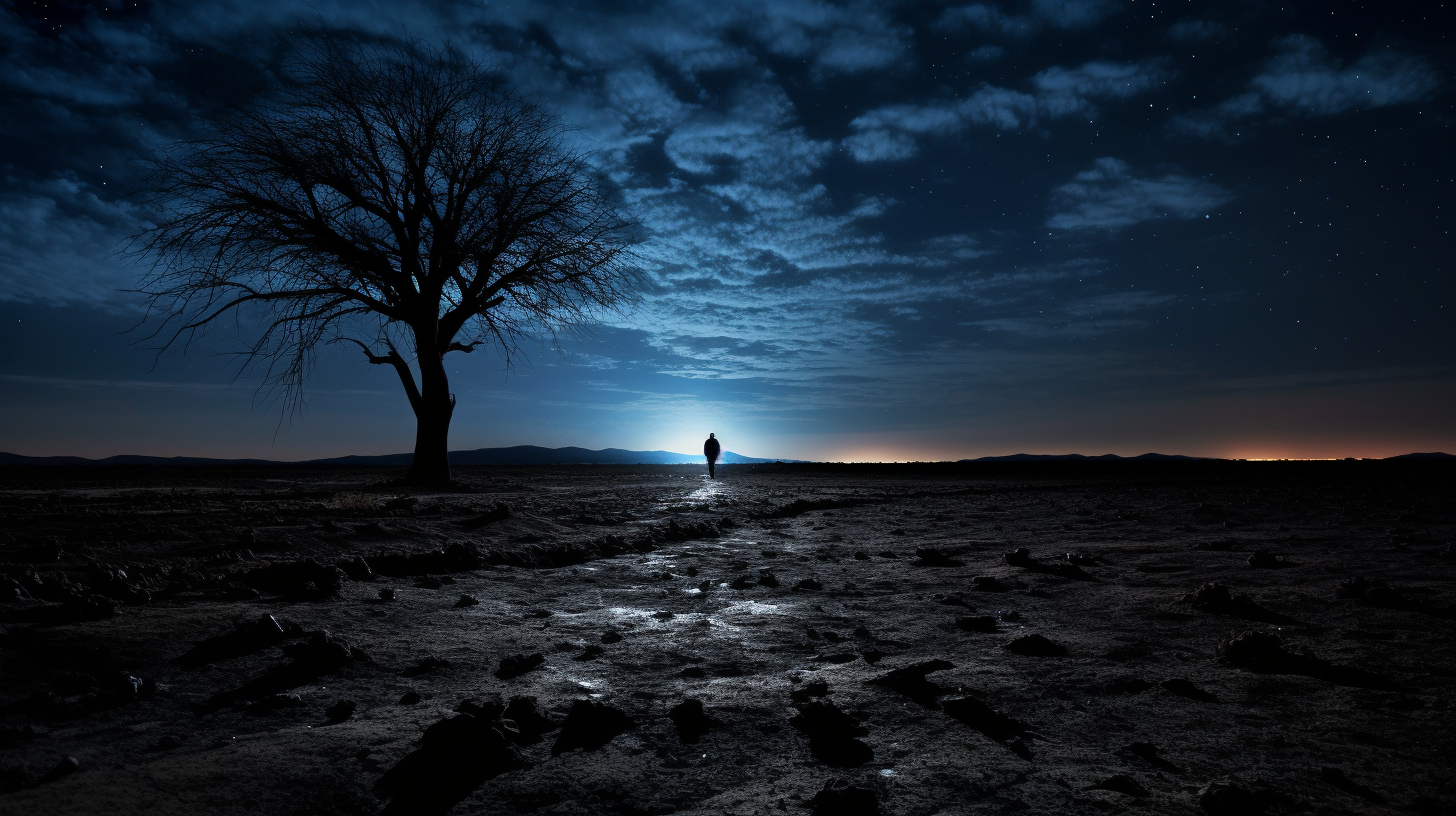In a world scourged by the relentless sun, humanity has begun a silent metamorphosis, an adaptation scribed in the seared earth and etched into mankind’s collective resolve. We have become a nocturnal species, shunning the scorched daylight hours, our lives reoriented to the relative cool of night as we grapple with the extremes of an endless drought.
The ceaseless drought has withered fields and drained rivers to mere skeletons of their former glory. Our reservoirs, much like our hopes, have long run dry. Food scarcity is now the norm, a bitter tale told beneath the gaze of a relentless moon. As water has become more precious than gold, bandits prowl the dying lands where once the life-giving liquid flowed freely. Agriculture, once the backbone of our society, has now collapsed – leaving communities hollowed out, ghost towns where once there was laughter and life.
Amidst this parched existence, innovative survival strategies have emerged. Under the cloak of darkness, farmers toil in the cooler air to nurture drought-resistant crops; genetically modified to thrive where others fail. The night markets bustle with energy, their lanterns a mosaic of hope in the dark, selling these hardy yields and recycled water – a currency of its own.
Societal norms have been reconstructed out of necessity. Education, labor, and family life now operate on a nocturnal schedule. School children learn by the light of LEDs, and offices are alive with activity as the stars journey across the sky. As our bodies adjust to the inverted rhythm, the health impacts are yet to fully unveil themselves – the psychological strain of a life lived in darkness just beginning to be understood.
Energy has become a more coveted resource than ever, solar power ironically our savior in a sun-scorched land. But with infrastructure failing beneath the relentless heat, questions of sustainability and survival linger in the air as thickly as the dust that swirls through our abodes.
Yet amidst this nocturnal renaissance, a reminder of human ingenuity and resilience is ever-present. Communities have banded together, sharing resources and knowledge. Rooftop gardens insulated against the heat and small-scale desalinization units have become common sights. Technology that once was cutting-edge is now repurposed for survival. Adaptation is the heartbeat of humanity, thumping defiantly against the drought’s oppression.
In this world, devoid of hope’s whisper, we are left to ponder the legacy of our environmental apathy. The consequences of our neglect are written in the collapse of ecosystems, in the loss of biodiversity – the price paid in full by every species still clinging to a foothold on this overheated planet.
Long since past is the time for gradual change, for modest proposals and incremental steps. The moment for action was yesterday, somewhere in the annals of history where we might have altered this desolate course. And yet, we walk forward – or rather, we walk by night – through this dystopian landscape, crafting a life within the confines of a tragedy of our own making.
It is here, in the heart of darkness, that humanity writes a new chapter; a somber narrative of adaptation not out of aspiration, but of sheer, unyielding necessity.
